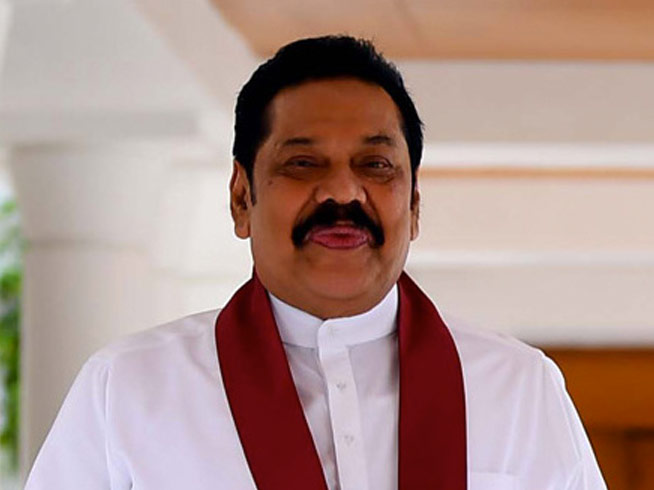Sri Lanka’s Prime Minister Mahinda Rajapaksa hinted that he is prepared to introduce an anti-conversion bill to “save this country” from falling into deep difficulties.
On 2 March, Rajapaksa, a leading member of the majority Sinhala Buddhist community and brother of the country’s president, spoke shortly before the announcement of a general election, due to take place on 25 April but now postponed because of the coronavirus.
Addressing the annual convention of the All Ceylon Buddhist Congress, a network of 324 councils responsible for running Buddhist Dhamma schools, Rajapaksa outlined the “threats facing the Sinhala Buddhist nation” . He identified the conversion of “traditional Buddhist families to other religions” as a major “threat”.
The Prime Minister said that he had recently attended a wedding of a friend where the family, which had been Buddhist for generations, had converted to another religion (which he did not name). Rajapaksa’s own wife, Shiranthi, is a practising Roman Catholic.

Rajapaksa implied that an anti-conversion bill could be introduced after the parliamentary elections if the Sanga Sabawa (Monks’ Council) unanimously agreed. “There are many that oppose it and that is why we don’t want to touch it,” Rajapaksa told his audience. “If you want it you must bring it forward unanimously otherwise it will be my neck on the line,” he added.
The “unethical” conversions issue resonates with the nationalist slogan of “rata, jatiya, agama” (country, nation, religion) that is promoted to identify Theravada Sinhala-Buddhism.
The 2009 draft bill stated an attempt to convert a person from one religion to another would be punishable with a jail sentence of up to seven years and a maximum fine of LKR 500,000 (£2,220; $2,700; €2,400). The 2005 draft bill, which had proposed similar penalties, but lower maximum fines, was struck down by Sri Lanka’s Supreme Court as being “inconsistent” with the constitution.
Christian leaders in Sri Lanka say the latest proposal is part of the government’s pre-election campaign. “They are using extremism to be popular,” said a pastor. “They have already started to collect information regarding churches through local government authorities. I believe they are strategically working out something against the house church movement.”
Another pastor added, “By pleasing the monks and voters, the government will try to get the majority seats in the next general election. The government has already started gathering data at the grassroots level. It is frightened to see the growth of the local churches in rural areas.”
Anti-conversion legislation would criminalise conversions “by force, fraud and allurement”. This would be similar to the anti-conversion laws in place in several states of neighbouring India. These Indian laws, ironically called “Freedom of Religion” laws, ban the use of force, fraud or allurement in conversion. Their vague terms make Christians actively sharing their faith vulnerable to false accusation and many Indian Christians have been harassed and persecuted under these laws.